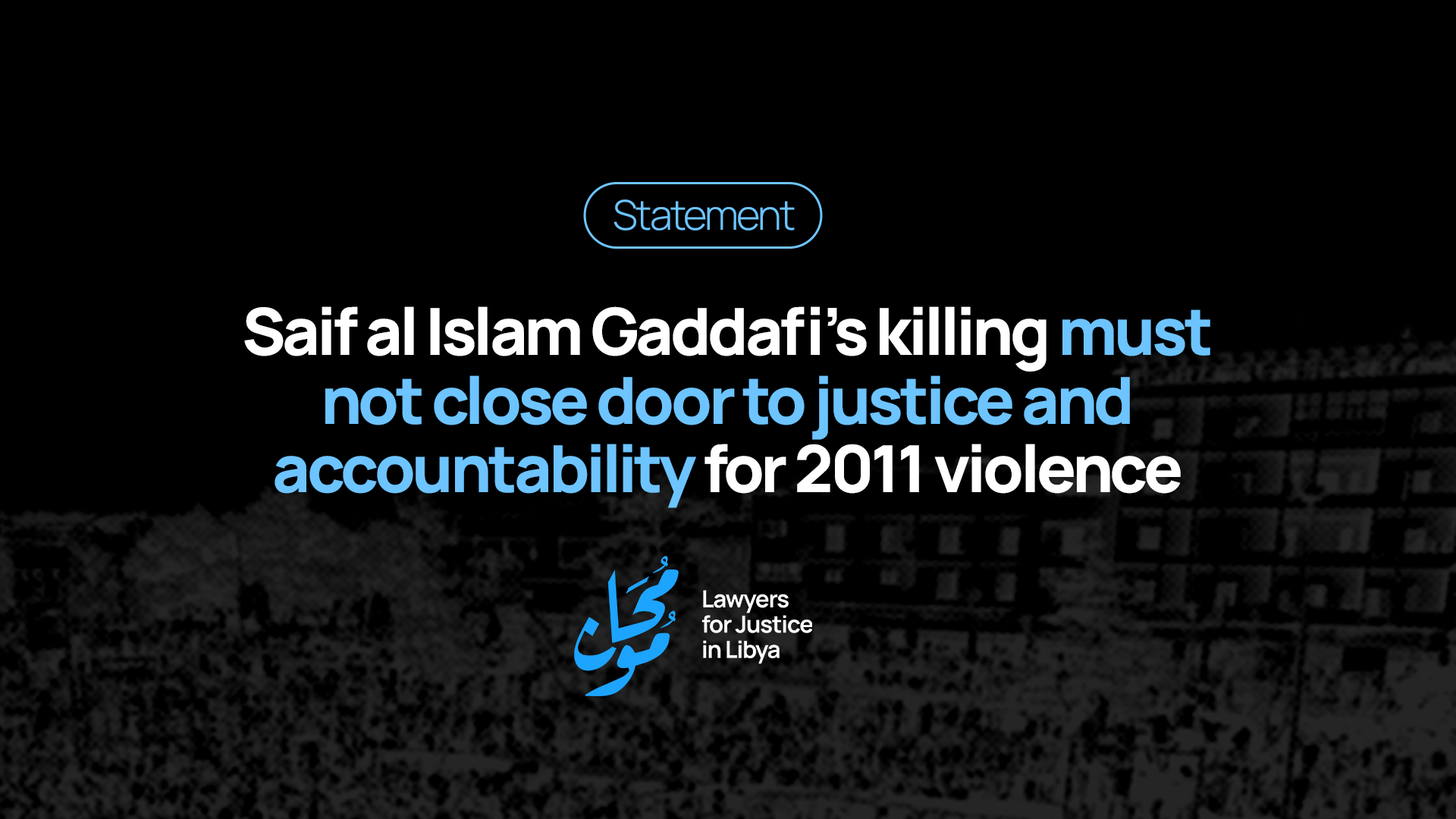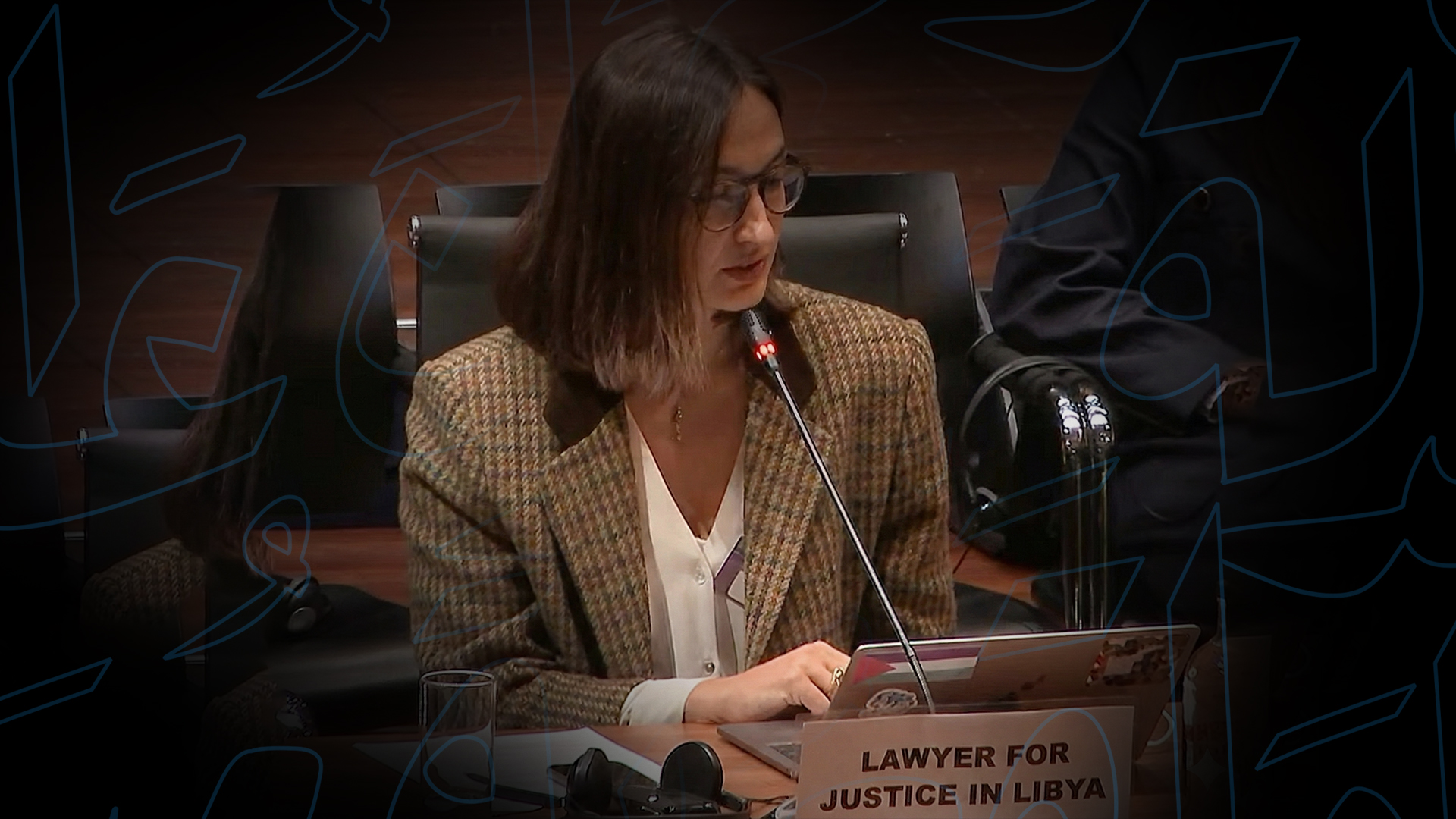UNSC Resolution 2510: Member States Must Prioritise Enforcement or Risk Failure
Following the recent adoption of the United Nations Security Council (the UNSC) resolution on Libya, Lawyers for Justice in Libya (LFJL) calls for the UNSC and Members States to prioritise the enforcement of UNSC resolutions related to accountability for violations of international law and of the arms embargo.
On 12 February 2020, the UNSC adopted Resolution 2510 (the Resolution) regarding the situation in Libya. The Resolution endorses the conclusions of the conference held in Berlin on 19 January 2020 (the Conference), which included the acknowledgement of the importance of holding accountable those responsible for international law violations. While LFJL welcomes the UNSC’s condemnation of the ongoing violence and call for a cease-fire, the Resolution itself presents few new initiatives. Instead, it primarily reaffirms Member States’ commitments to existing mechanisms and previous resolutions. Additionally, the Resolution’s language on accountability remains weak. For instance, the Resolution demands that all parties to the conflict comply with international law, including international humanitarian law, but does not demand accountability for those who commit violations. “In fact, this Resolution only further highlights that the problem in Libya is not the lack of UNSC resolutions, but the failure to enforce the existing resolutions,” said Natalie Mazur, Head of Accountability and Transitional Justice at LFJL. “Essentially what needs reminding is that UNSC resolutions are binding on all UN Member States. Implementation is not optional and must be enforced by all Member States, including by activating national mechanisms.”
A notable number of previous UNSC resolutions were created to protect human rights and geared towards accountability. UNSC Resolution 1970 of 2011, most notably, established the jurisdiction of the International Criminal Court over the situation in Libya, enacted an arms embargo and created the Sanctions Committee (the Committee). The Committee has the power to designate individuals and entities “involved in or complicit in (…) serious human rights abuses against persons in Libya”, including those who commanded or ordered attacks violating international law. Subsequent resolutions expanded the Committee’s mandate so that it may, among other things, designate individuals or entities who engage in or support acts that threaten the peace, stability or security of Libya, who obstruct or undermine its political transition or who violate the arms embargo.
Despite the existing resolutions, well-documented serious violations of international law and recognised military support to parties to the conflict in violation of the arms embargo, have been met with little condemnation. Only eight individuals have been designated for sanctions by the Committee since 2011. Instead, violations of UNSC resolutions by parties to the conflict and Member States are repeatedly conducted with impunity. The UN Panel of Experts, the designated body mandated to assist the Committee and to gather, examine and analyse information on implementation of UNSC resolutions on Libya, particularly in relation to incidents of noncompliance, has reported on numerous violations of the arms embargo by Member States and violations of international law that have not been addressed. The basis for action exists. The problem lies in implementation.
One of the key problems is that members of the UNSC form the Committee membership and designations are made by consensus. “The lack of action by the Committee in response to flagrant violations of UNSC resolutions, especially those resulting in grave violations of human rights, suggests that political interests and the lack of political will from the UNSC members are influencing and preventing sanctions designations,” said Mazur. “Designations for sanctions should be the result of independent and impartial decision-making based on the established rules, and not on the basis of UNSC members’ political interests,” she added.
LFJL reminds Member States that they are required to implement UNSC resolutions, including at the national level. Many Member States maintain their own domestic sanctions regimes. This empowers Member States to unilaterally issue sanctions for a variety of purposes, such as in response to human rights violations or to promote international peace and security. “States should use specific legislation enabling them to sanction individuals who commit gross human rights violations. The Global Magnitsky Human Rights Accountability Act in the US and the UK’s Sanctions and Anti-Money Laundering Act are but examples of domestic legislation that can be activated to bring force to binding UNSC resolutions and to further accountability,” said Mazur. “National courts are also empowered in many Member States to prosecute perpetrators of serious human rights violations in Libya in accordance with the principle of universal jurisdiction,” she added.
In the absence of accountability for violating UNSC resolutions, the initiatives of the Conference will once again fail and the conflict, along with the serious human rights violations, will continue in Libya. The UN and Member States must not only endorse but commit in practice to the implementation of the Conference’s conclusions and the UNSC’s resolutions related to the protection and promotion of international law and accountability for violations. Ending impunity through actual implementation of these resolutions is not only the responsibility of the UNSC and its Member States, but is also a critical component of the UNSC mandate to maintain international peace and security.





